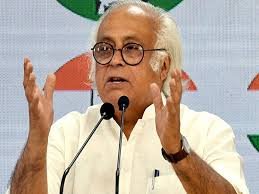NEW DELHI, June 9 (PTI): Political scientists Suhas Palshikar and Yogendra Yadav have asked NCERT to drop their names as chief advisors from all Political Science textbooks, saying the rationalisation exercise has “mutilated” the books beyond recognition and rendered them “academically dysfunctional”.
Stating that they were embarrassed to be mentioned as chief advisors, Palshikar and Yadav have written to the National Council for Educational Research and Training (NCERT) and said the cuts in the textbooks were arbitrary and irrational.
Palshikar and Yadav, who were chief advisors for the original Political Science books for classes 9 to 12, said, “While the modifications have been justified in the name of rationalisation, we fail to see any pedagogic rationale at work here. We find that the text has been mutilated beyond recognition. There are innumerable and irrational cuts and large deletions without any attempts to fill the gaps created.
“We were never consulted or even informed of these changes. If NCERT did consult other experts for deciding on these cuts and deletions, we explicitly state that we fully disagree with them in this regard,” according to the letter sent to NCERT director Dinesh Saklani.
Palshikar, an academician and political scientist, and Yadav, political scientist and Swaraj India leader, were chief advisors for the Political Science books for classes 9 to 12 originally published in 2006-07 based on the 2005 version of the National Curriculum Framework (NCF).
Their names are mentioned in a “letter to students” and the list of textbook development team at the beginning of each book.
In their letter, they said, “As academics organically associated with the preparation of these textbooks, we are embarrassed that our names should be mentioned as chief advisors to these mutilated and academically dysfunctional textbooks. We wish to explicitly record our full disagreement with the entire process of reshaping the text in name of rationalisation.”
“Both of us would like to disassociate ourselves from these textbooks and request the NCERT to drop our names….we request you to give effect to this request immediately and ensure that our names are not used in the soft copies of the textbooks available at the NCERT websites and also in the subsequent print editions,” the letter read.
They said they believe that any text has an internal logic and such “arbitrary cuts and deletions” violate the spirit of the text. The frequent and serial deletions do not seem to have any logic accept to please the powers that be, they said.
“Textbooks cannot and should not be shaped in this blatantly partisan manner and should not quell the spirit of critique and questioning among students of social sciences. These textbooks as they stand now do not serve the purpose of training students of political science both the principles of politics and the broad patterns of political dynamics that have occurred over time,” the letter said.
Dropping several topics and portions from the NCERT textbooks last month triggered a controversy, with the Opposition blaming the Centre for “whitewashing with vengeance”.
At the heart of the controversy was the fact that while the changes made as part of the rationalisation exercise were notified, some of these controversial deletions were not mentioned. This led to allegations about a bid to delete these portions surreptitiously.
The NCERT had described the omissions as a possible oversight but refused to undo the deletions, saying they were based on the recommendations of experts. It also said the textbooks are anyway headed for revision in 2024 when the National Curriculum Framework kicks in. However, the NCERT later changed its stand and said “minor changes need not be notified”.
Among the references dropped from the Class 12 History textbook were certain portions on Mahatma Gandhi and how his pursuit of Hindu-Muslim unity “provoked Hindu extremists”, and on a ban on the RSS.
“Gandhiji’s death had magical effect on communal situation in the country”, “Gandhi’s pursuit of Hindu-Muslim unity provoked Hindu extremists”, and “organisations like RSS were banned for some time” are among the portions deleted.
The portions referring to the Gujarat riots were also dropped from the Class 11 Sociology textbook, months after the NCERT removed the reference to the 2022 communal violence in two class 12 textbooks.












